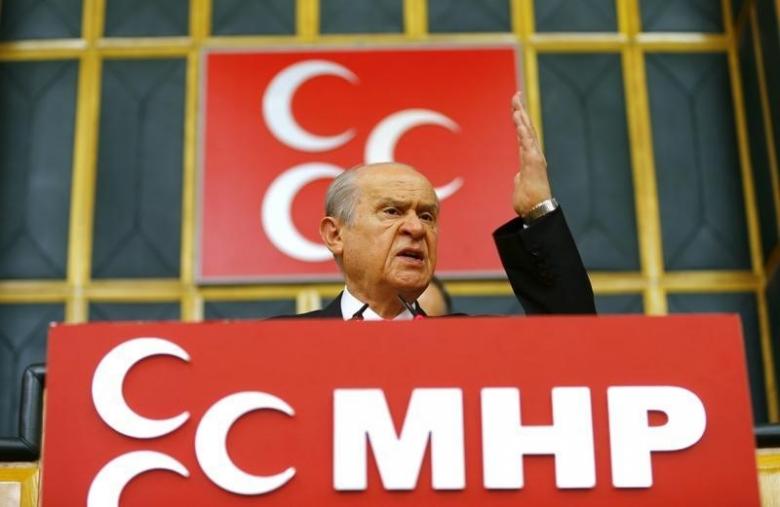Ankara-The veteran leader of Turkey’s nationalist opposition, Devlet Bahceli, who has earned the moniker “Dr. No,” has appeared as a more consensual figure after the July coup attempt despite his efforts to complicate the country’s political process following the June 2015 elections in which the ruling AK Party failed to hold onto its majority.
Following the elections, Bahceli, the Nationalist Movement Party (MHP) leader, rejected a coalition with the AKP or any other party and refused to support a minority government.
He also rejected to participate in any cabinet which has representatives from the Peoples’ Democratic Party.
But following the attempt by a faction of the armed forces to seize power in July this year, Bahceli backed the ruling party’s emergency rule decisions and the presidential system proposed by the head of state, Recep Tayyip Erdogan, and asked his lawmakers to vote in a referendum on changing the constitution and introducing the new system.
In previous years, the head of MHP had been at loggerheads with Erdogan over the presidential system and had formed, along with the main opposition Republican People’s Party and several other parties, a front to push for a consensual candidate for the August 2014 presidential elections.
Bahceli’s main objective was to stop Erdogan from winning the polls.
Erdogan has long wanted an executive presidency, a Turkish version of the system in the United States or France, saying the country needs strong leadership.
The proposal to establish a presidential system had led to wide divisions in Turkey, prompting former Prime Minister Ahmet Davutoglu to drop it from the agenda of the AKP in the campaign for early elections that were held in November 2015 and in which the ruling party gained the majority of seats that allowed it to form the government but stopped it short from controlling the parliament.
In this election, Bahceli gained only 40 seats in the parliament, becoming the smallest of the four parties in the legislature.
His loss was attributed to being “Dr. No.”
But Bahceli surprised the public earlier this month, after backing the referendum on the constitutional change – a move that was widely welcomed by Turkish Prime Minister Binali Yildirim.
Last Monday, Bahceli and Yildirim held more consultations on the presidential system and the new constitution.
“Turkey badly needs a new consensual formula amid the world developments,” Bahceli said following the meeting.
“If the AKP brings its plans to parliament and takes into account our principles and sensitivities, I believe a reasonable outcome will be achieved.”
MHP’s vision lies in finding a formula that would give priority to the citizen and resolve the problems facing Turkey,” he stated.
Analysts said his words meant he was giving the green light to holding the referendum on the new constitution.
But he also created differences within the Turkish opposition. The head of the Republican People’s Party, Kemal Kilicdaroglu, accused Bahceli’s movement of “striking a secret deal with the ruling party,” while the deputy chief of the Peoples’ Democratic Party said the AKP and the MHP are “trying to drag Turkey to a dictatorship.”
Any constitutional change requires the support of at least 367 deputies in the 550-seat assembly to pass directly, and of 330 deputies to go to a referendum. The AKP has 317 seats.
